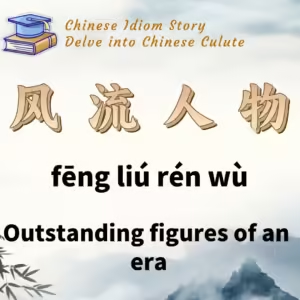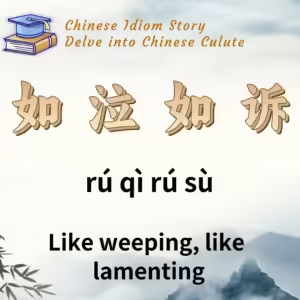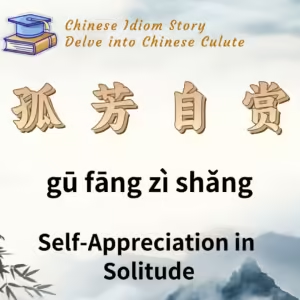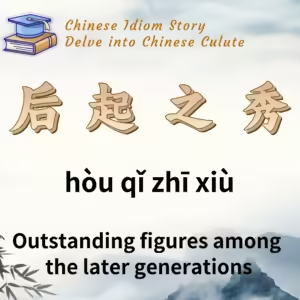
Chinese Idiom: 风流人物 (Feng Liu Ren Wu)
English Translation: Outstanding figures of an era
pīn yīn: fēng liú rén wù
Idiom Meaning: This idiom refers to exceptional individuals who have left a lasting mark on history or society, often characterized by their remarkable achievements or influence.
Historical Source: Su Shi’s Nian Nu Jiao: Red Cliff (《念奴娇·赤壁怀古》) from the Song Dynasty.
Idiom Story
The idiom “风流人物” comes from Su Shi’s renowned poem Nian Nu Jiao: Red Cliff written in 1082. Su Shi, a prominent scholar and poet of the Song Dynasty, was exiled to Huangzhou. During his exile, he visited the Red Cliff on the Yangtze River, a historic site of great significance.
The poem reflects on the famous Battle of Red Cliff during the Three Kingdoms period, where the Wu general Zhou Yu achieved a decisive victory over Cao Cao’s forces. Su Shi, while admiring the beauty of the river and the surrounding landscape, also pondered the passage of time and the fleeting nature of human glory.
In his poem, Su Shi writes:
“大江东去,浪淘尽,千古风流人物。故垒西边,人道是,三国周郎赤壁。乱石崩云,惊涛裂岸,卷起千堆雪。江山如画,一时多少豪杰。”
Translation:
“The great river flows eastward, washing away countless historical figures. To the west of the old fort, it is said that Zhou Yu of the Three Kingdoms commanded here. The chaotic rocks rise like clouds, and the surging waves crash against the shore, creating piles of snow-like foam. The landscape is picturesque, and many heroes once emerged in this era.”
Su Shi reflects on the past glory of Zhou Yu, admiring his youthful valor and tactical brilliance. He contrasts this with his own time, feeling that such greatness is now just a memory. The phrase “千古风流人物” captures the essence of historical figures who have had a lasting impact on their times.
This evocative line has since been simplified to “风流人物,” which now broadly refers to influential and outstanding individuals whose legacies endure through history.






